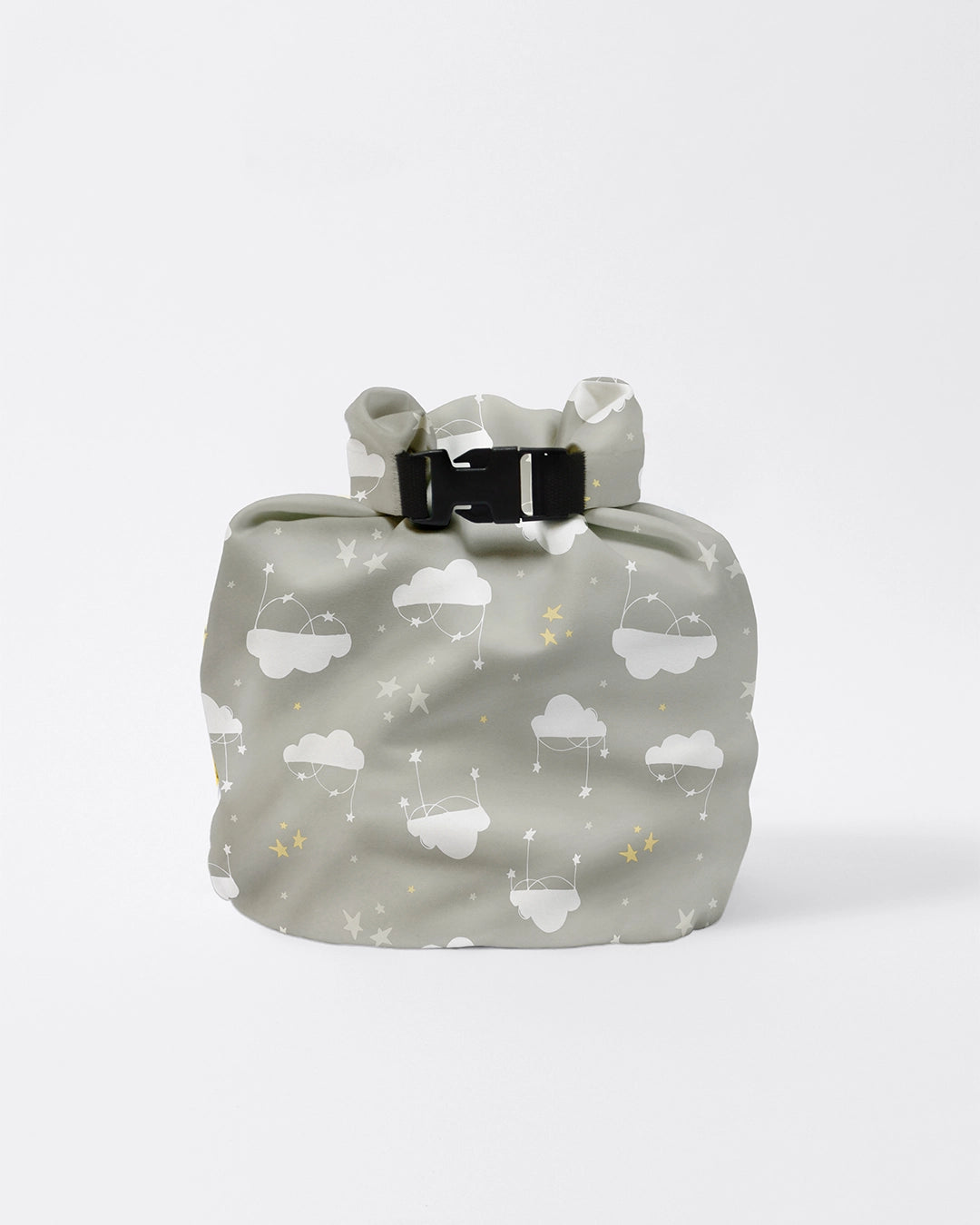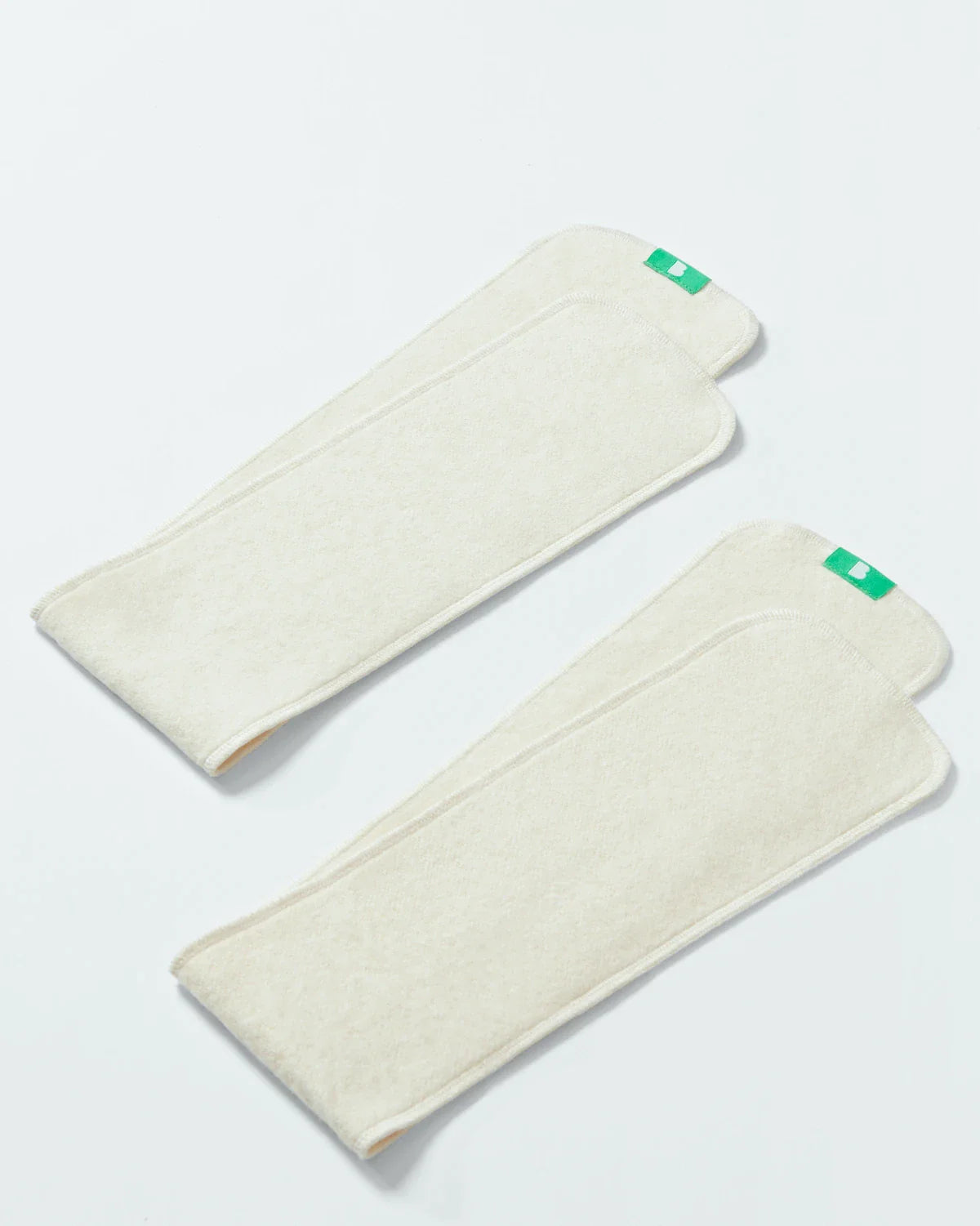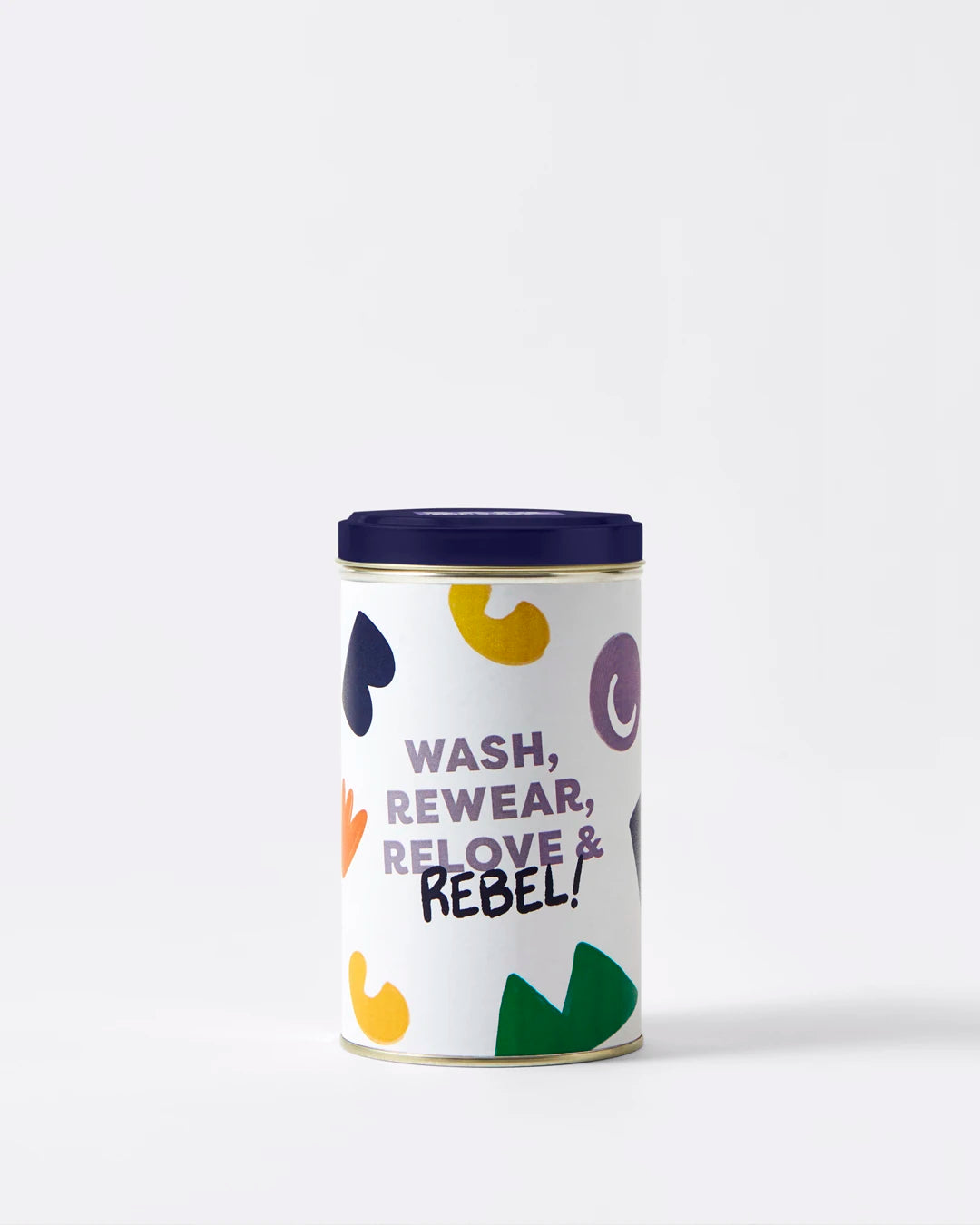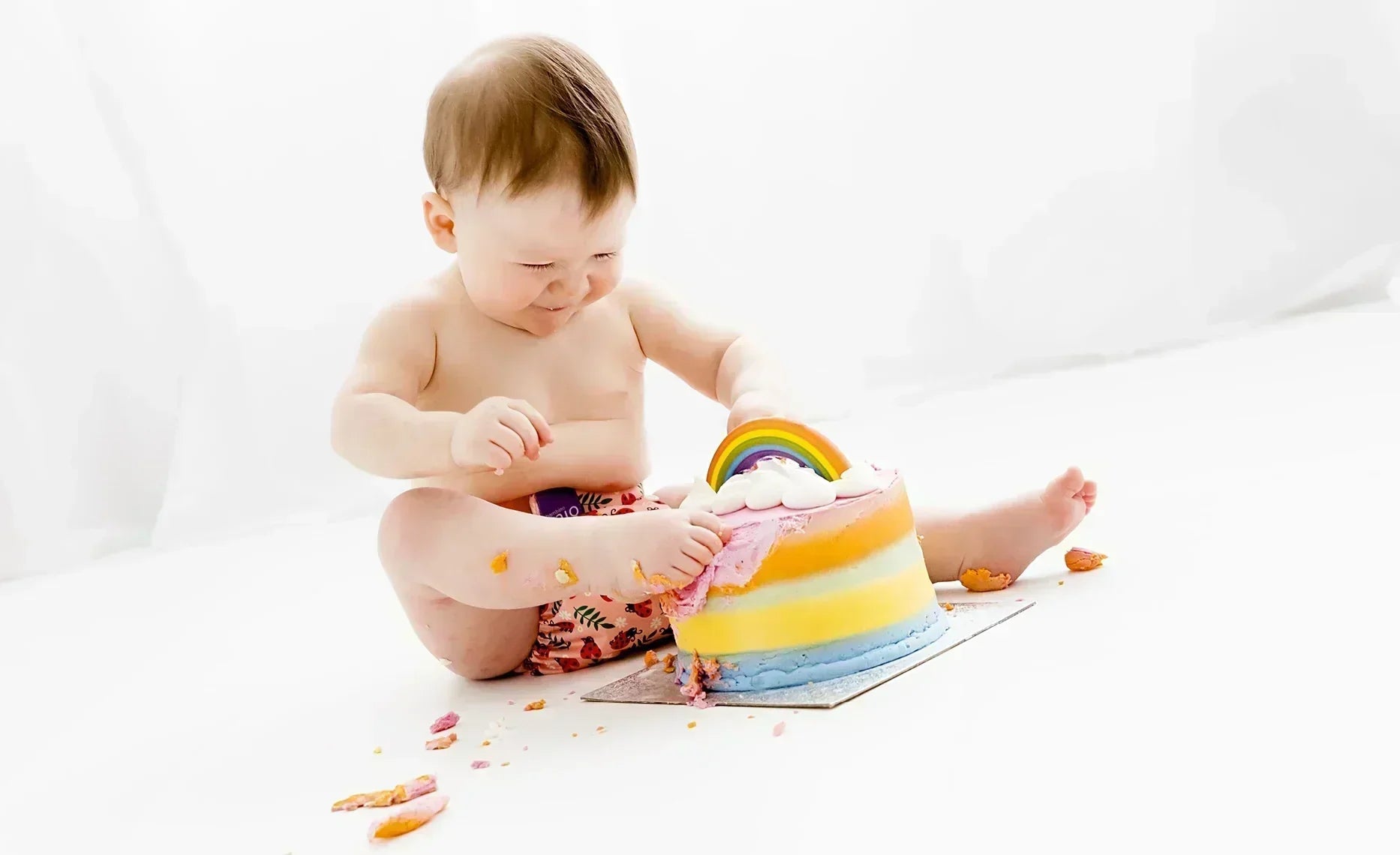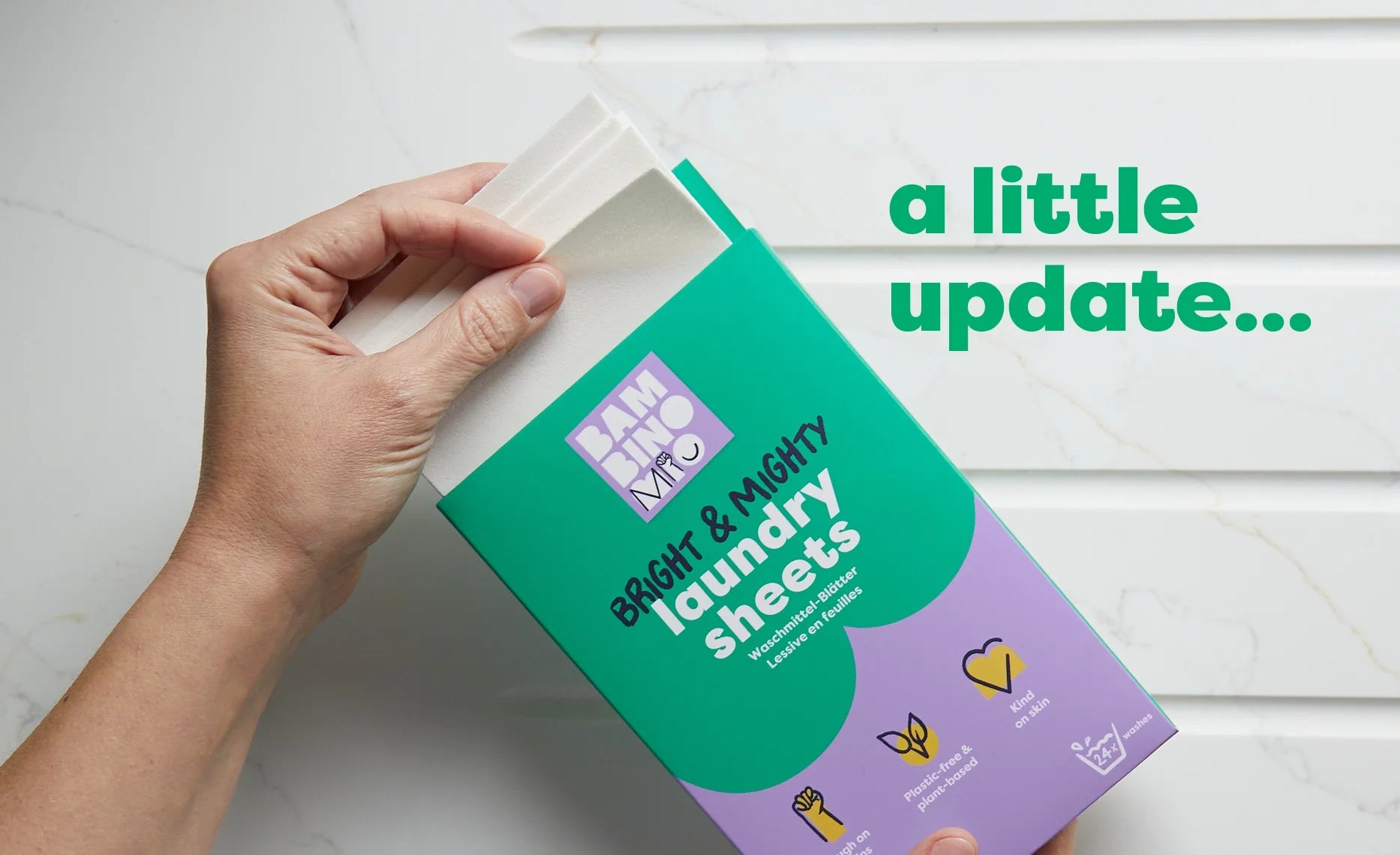Helping Your Baby to Talk
Share Options
- Bambino Mio
- 16 / 10 / 2023
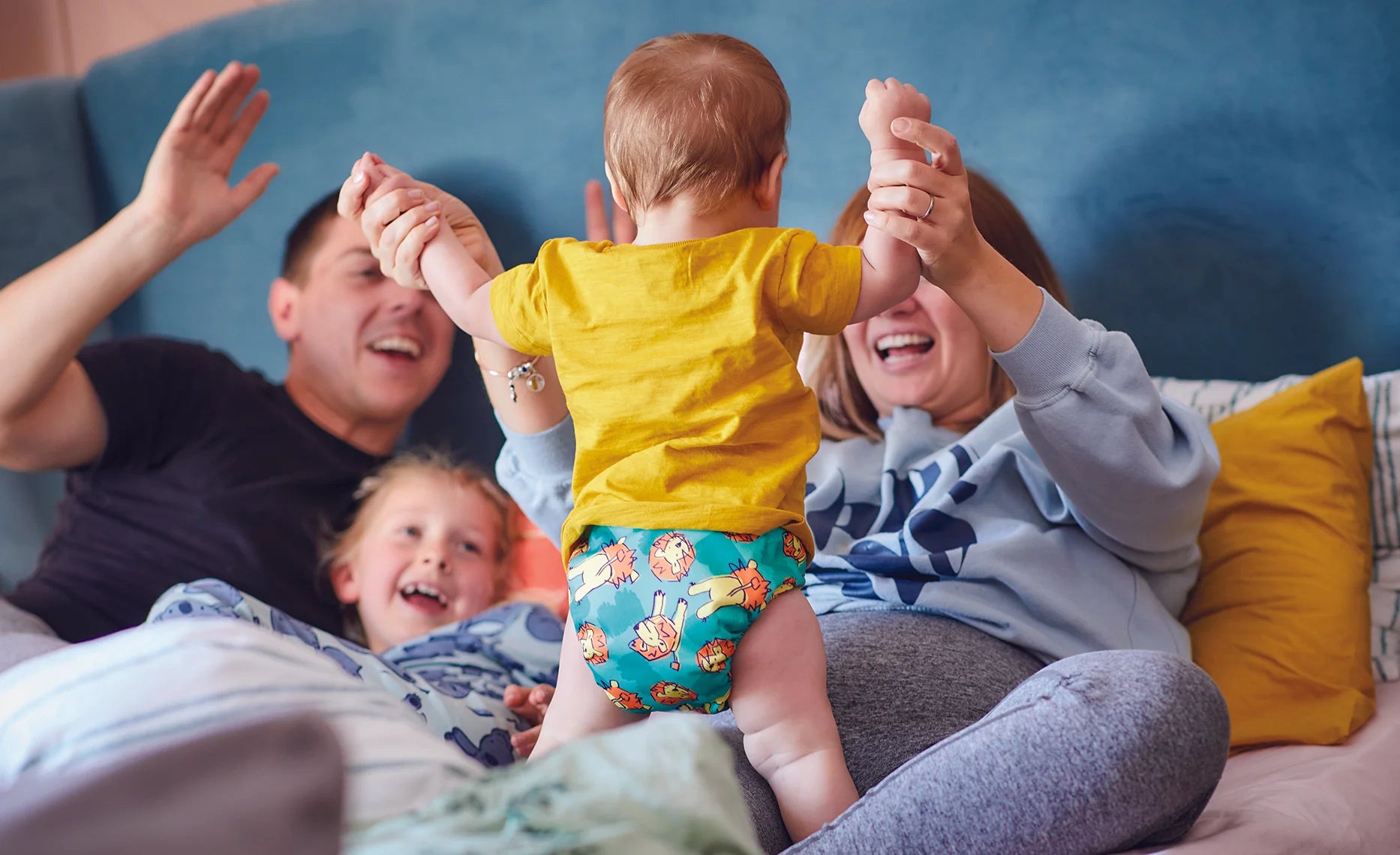
Inside this Article:
Your baby will probably start to say their first recognisable words sometime between the ages of 12 and 18 months, although of course, your mileage may vary as all babies are unique.
There’s no great trick to helping your baby to talk, as their brain is already hardwired to acquire and develop language (2) and language skills. All you need to do is give them the input necessary to get those cogs turning!
A lot of the help you can give your baby will happen naturally. That silly face you pull as you repeat simple phrases to your baby (3)? That’s also hardwired as we’re a talkative sort of animal!
You can still help your baby to learn to talk
Even though your baby’s amazing brain will do most of the work, you can still help them along and make sure they have a rich vocabulary by adopting these habits as they grow and develop.
Newborn to six months
- Hold your baby close to you and make eye contact as you talk to them; babies love nothing more than faces and will watch you very carefully before trying to respond
- Offer your baby a running commentary on daily life - you might find washing up boring, but your baby has never seen it before
- Sing to your baby so they get to hear and feel the various rhythms of language
- Repeat any sounds or vocalisations your baby makes as this helps them to get the hang of listening and taking turns when having a conversation
- Use a sing-song voice as this will help to hold your baby’s attention
Six to 12 months
- Even though you’ve been chatting for months, you can start to assign names to things by pointing and saying “Look, a dog!” so your baby knows that things have words attached to them
- Introduce books to your baby and point to the various images while saying their names and maybe their colours or other distinctive features
- Reduce dummy usage (if your baby has one) because it’s harder to learn to talk with a mouthful of dummy
- Start playing games such as peek-a-boo as these help your baby to learn important social skills like listening, taking turns and paying attention
12 to 18 months
- Encourage your child to pronounce words properly by repeating what they say without overtly correcting them, so if your child says “Dock!” instead of “Dog!”, respond with “Yes, it’s a brown dog,”
- Offer your child choices of things to expand their vocabulary, such as “Do you want melon or banana?”
- Toys which sing and talk might drive you mad, but they’ll help your child to listen and pay attention
- Start singing songs and nursery rhymes with your baby, especially ones with actions, such as “wind the bobbin up” as pairing actions with words reinforces the meaning
18 to 24 months
- Use repetition in your speech, such as “Which coat do you want to wear, your red coat or your blue coat?”, as this helps your child to remember words
- Start to give your child simple instructions, such as “Put on your blue coat,” as short, one-step instructions are easy to follow and reinforce the meanings of words and actions
- Play games in which you ask “Where’s the dog?”, “Where’s your nose?” and so on
- Limit the amount of TV your child watches to around one hour a day as interacting with real people and listening to stories is more helpful at this age
Two to three years
- Help your child to compose sentences, as they’ll be starting to put two or three words together now; if they say “Feed dog,”, for example, you can respond with “Yes, let’s give Sally her food now,”
- Say your child’s name at the beginning of a sentence to get their attention and if you ask them a question, give them plenty of time to respond
- Start to group objects together, for example, if you’re tidying up, say “Here’s your ball, your teddy bear and your blocks; let’s tidy these toys away,”
- Pair sounds with actions and objects, for example, if you see a cat, say “Meow!” or if you drop something, say “Uh-oh!”
- Reduce the amount of background noise when you’re talking to your child as it can interfere with their listening development
My child seems to be a late talker, should I worry?
If you’re worried about your child’s language development, you can talk to your health visitor or GP. They might refer you to a speech and language therapy (SALT) department if they think there’s an issue, but most children suddenly catch up.
You can find out more about speech and language assessments and therapy here (4).
Citations and References
(1) National Health Service (NHS). ‘Speech and Language Development (From 12 to 24 Months).’ 2023. Web. www.gosh.nhs.uk/conditions-and-treatments/procedures-and-treatments/speech-and-language-development-12-24-months
(2) Psychology Today. ‘Infant Brains Are Hardwired for Language.’ 2010. Web. www.psychologytoday.com/gb/blog/brain-sense/201002/infant-brains-are-hardwired-language
(3) Linguistic Society of America (LSA). ‘FAQ: Language Acquisition.’ Web. www.linguisticsociety.org/resource/faq-how-do-we-learn-language
(4) Speech and Language UK. ‘Speech and Language Therapy Assessment.’ Web. speechandlanguage.org.uk/talking-point/parents/speech-and-language-therapy-assessment






















